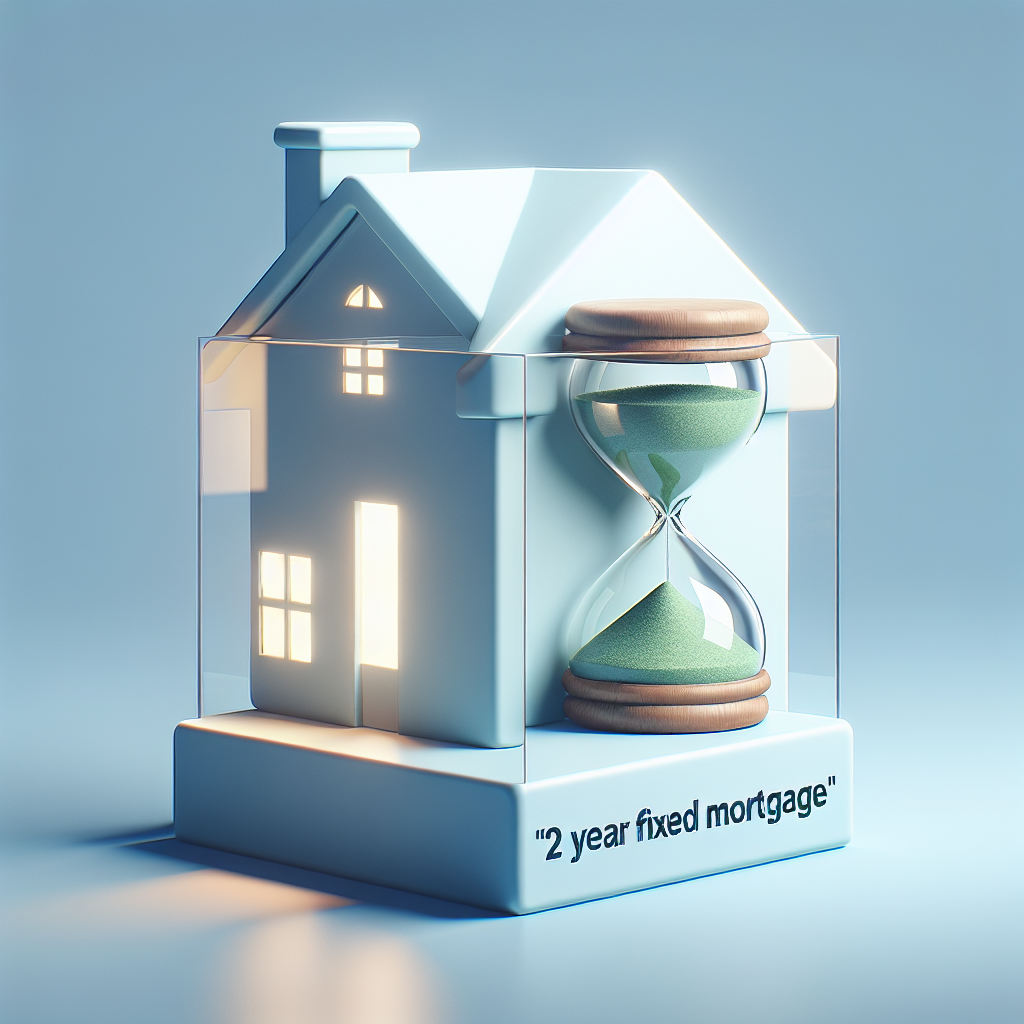What is a 2 Year Fixed Mortgage?
Definition
A 2 year fixed mortgage is a type of loan where the interest rate remains unchanged for the first two years of the loan term. This feature allows borrowers to have predictable monthly payments, making budgeting easier during this period. After the two years, the mortgage typically adjusts to a variable rate, which can lead to changes in monthly payments.
Key Features
- Fixed Interest Rate: The interest rate is locked in for the first two years.
- Short-Term Duration: Offers a brief commitment compared to longer-term mortgages.
- Potentially Lower Rates: Often offers lower rates than longer fixed mortgages, making initial payments more affordable.
- Flexibility: Ideal for individuals who plan to move or refinance within a short timeframe.
Benefits of a 2 Year Fixed Mortgage
Stability in Payments
One of the main advantages of a 2 year fixed mortgage is the stability it provides in monthly payments. Borrowers know exactly how much they need to pay each month for the first two years, allowing for easier financial planning. This stability can be particularly helpful in budgeting for other expenses, such as home improvements or education costs.
Short-Term Commitment
For those who may not want to stay in one place for long, a 2 year fixed mortgage offers a manageable commitment. It’s an attractive option for first-time homebuyers or those looking to test the waters of homeownership. After two years, homeowners can reevaluate their situation, whether that means refinancing, selling, or staying put.
How to Qualify for a 2 Year Fixed Mortgage
Credit Score Requirements
To qualify for a 2 year fixed mortgage, lenders typically look for a credit score of at least 620. However, the higher your credit score, the more favorable your mortgage terms may be. A better score can lead to lower interest rates and reduced fees.
Income Verification
Lenders will also require proof of income to ensure borrowers can afford the mortgage payments. This usually involves providing recent pay stubs, tax returns, and other financial documents. A stable income reassures lenders of your ability to meet your mortgage obligations.
Comparing 2 Year Fixed Mortgages to Other Options
2 Year Fixed vs. 5 Year Fixed
While both 2 year and 5 year fixed mortgages offer fixed interest rates, the main difference lies in the duration of the rate lock. The 5 year fixed mortgage provides a longer period of stable payments, which can be beneficial in a rising interest rate environment. However, the 2 year fixed mortgage typically comes with lower initial rates, making it attractive for short-term borrowers.
2 Year Fixed vs. Adjustable Rate Mortgages
Adjustable rate mortgages (ARMs) can start with lower initial interest rates than fixed mortgages but carry the risk of rate increases after a specified period. In contrast, a 2 year fixed mortgage guarantees the interest rate for the first two years, providing assurance against sudden rate hikes. Borrowers who prefer predictability may lean toward the 2 year fixed option.
Current Trends in 2 Year Fixed Mortgages
Interest Rate Trends
As of late 2023, interest rates for 2 year fixed mortgages have shown fluctuations due to economic conditions. Investors and homebuyers alike are keeping a close eye on these trends, as shifts in the economy can significantly impact borrowing costs. Generally, when the Federal Reserve increases rates, mortgage rates tend to rise as well.
Market Demand
There has been a steady demand for 2 year fixed mortgages, especially among first-time homebuyers. The appeal of short-term commitment and lower initial payments attracts many individuals who are cautious about long-term financial commitments. However, market conditions can affect availability and interest rates.
Frequently Asked Questions About 2 Year Fixed Mortgages
What Happens After the Fixed Period?
After the two-year fixed period, your mortgage may convert to a variable rate. This means your interest rate can change based on market conditions, potentially affecting your monthly payment. It’s crucial to plan for this adjustment, either by refinancing or budgeting for possible increases.
Can You Refinance a 2 Year Fixed Mortgage?
Yes, refinancing a 2 year fixed mortgage is possible. Homeowners may choose to refinance to take advantage of lower rates or to switch to a different loan type. However, it’s essential to consider the costs associated with refinancing and whether it aligns with your financial goals.
Are there penalties for paying off a 2 year fixed mortgage early?
Some lenders may impose prepayment penalties if you pay off your loan early. Always review your loan agreement to understand any fees associated with early repayment.
Is a 2 year fixed mortgage suitable for investment properties?
While a 2 year fixed mortgage can be used for investment properties, it’s essential to consider the risks involved. Investors should evaluate their long-term strategy and whether they may want to hold the property for more than two years.
How do I choose the best lender for a 2 year fixed mortgage?
To find the best lender, compare interest rates, fees, and customer service reviews. It’s also beneficial to check if the lender is willing to work with you based on your financial situation and goals.
Can I convert my 2 year fixed mortgage to a longer-term mortgage later?
Yes, many lenders allow you to convert your 2 year fixed mortgage to a longer-term loan. This option can be beneficial if you decide to stay in your home beyond the initial two years.
Conclusion: Is a 2 Year Fixed Mortgage Right for You?
Considerations
Before deciding on a 2 year fixed mortgage, consider your future plans and financial situation. If you expect to move or refinance within a couple of years, this option may be ideal. However, if you plan to settle down for a longer period, a 5 year fixed or longer-term mortgage may be more suitable.
Final Thoughts
A 2 year fixed mortgage can offer significant benefits for those looking for short-term stability in their payments. With its predictable costs and potential for lower initial rates, it’s worth considering if it aligns with your financial goals. Always consult with a financial advisor or mortgage specialist to ensure you make the best choice for your specific circumstances.





0 Comments